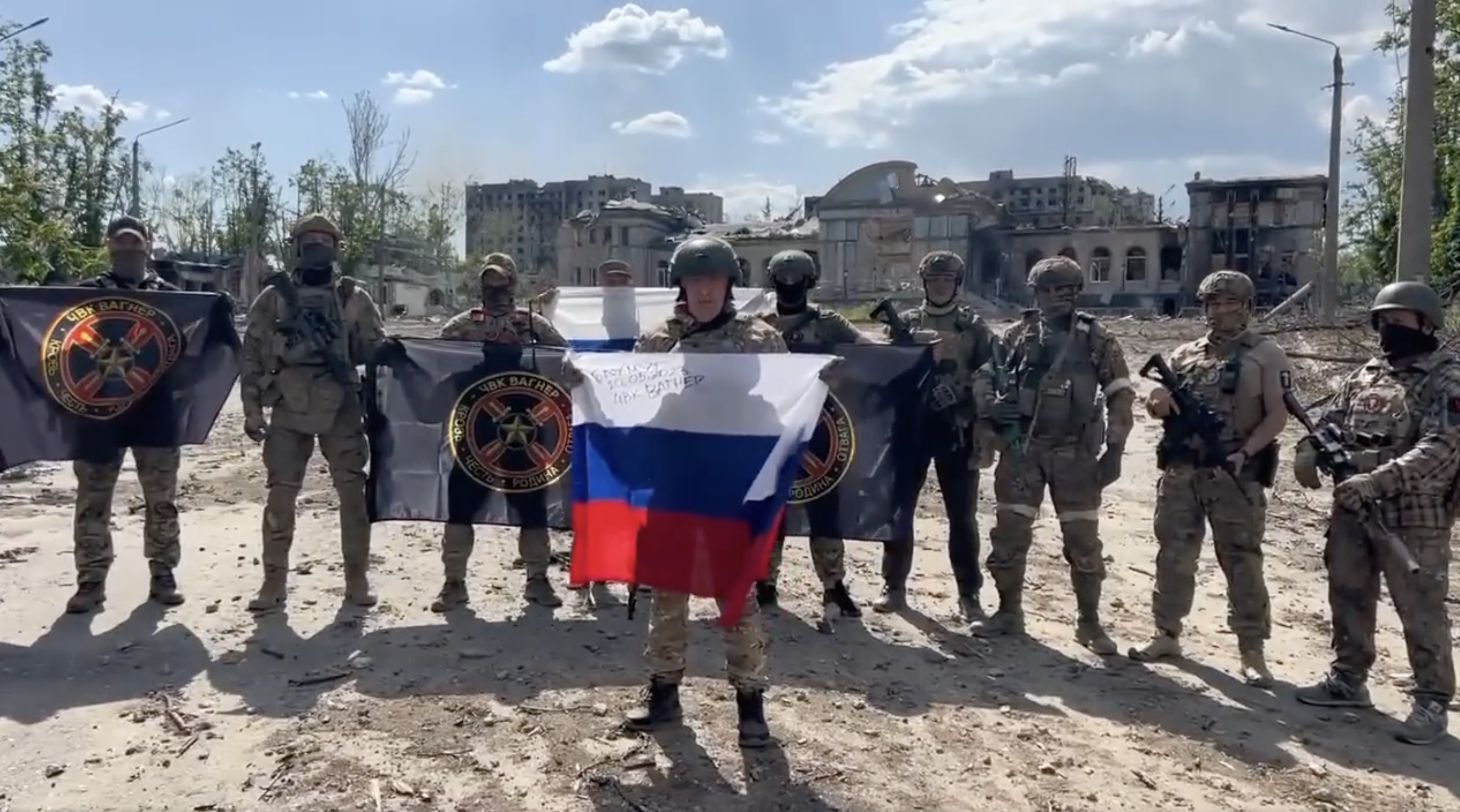At noon Ukrainian time yesterday, and exactly one year since Russia captured the coastal city of Mariupol, Wagner Group leader Yevgeny Prigozhin declared victory in the battle for Bakhmut in a boastful video statement. Kyiv has denied the claim, but most signs indicate that the city is now under Russian occupation. This is a significant, though costly, political and military win for the Kremlin, prevailing in the most intense conventional battle in recent European history. It is also a propaganda victory for the infamous Wagner Group, as the parastate organisation spearheaded a months-long campaign against a large, capable, and determined Ukrainian resistance.
Prigozhin stated that his Wagner Group fighters will be rotating out on May 25 and handing responsibilities for defending the city over to the Russian Ministry of Defence, since his personnel need to rest and refit after the gruelling 224-day battle. He proceeded to note that “when our country, our people, our families need us again, we will come back and defend our people, if necessary.” Notably, Prigozhin thanked Russian President Vladimir Putin, General Surovikin and General Mezentsev, while taking parting shots at Defence Minister Sergei Shoigu and Chief of the General Staff Valery Gerasimov.
Over the next few days, it is likely that Russian forces will push to establish a secure buffer zone around Bakhmut, just as they did after taking Severodonetsk and Lysychansk last year. There are already reports that neighbouring Khromove is in the crosshairs and that Russian forces have their eyes on Ivanivske. In congratulating Wagner, the head of the Donetsk People’s Republic, Denis Pushilin, encouraged continued advances, saying, “we need to go further and at the same time rebuild the settlements of the DPR.” Dmitry Polyanskiy, First Deputy Permanent Representative of Russia, similarly tweeted about how his country’s military will take “many more” Ukrainian cities in the future.
The fall of Bakhmut could have considerable implications for the front given the interconnected nature of Ukraine’s current line of defence, with the next one being more open. Ukrainian President Volodymyr Zelenskyy, in spite of pressure from allies to withdraw from Bakhmut months ago, warned in March that Russian troops would have “open road” to advance to Kramatorsk and Slavyansk if the city were taken. Capturing Bakhmut was also a prerequisite for Russia’s campaign to take the Donbas — one of the chief objectives put forth at the onset of the invasion. Moreover, freed up Russian capacity may be used to bolster offensive pressure in other areas such as Avdiivka and Siversk.
Still, the news is not all bad for Ukraine given recent local operations that have eaten into Russia’s flanks either side of Bakhmut. Kyiv also says it is preparing a large counter-offensive possibly designed to cut into Russia’s land bridge to Crimea, and perhaps to try and make gains in other directions. What’s more, given Ukraine’s proven ability to roll back Russian occupied territory, it’s certainly conceivable that there could be a second battle for Bakhmut. This could be during the coming offensive, or further down the line.
The fall of Bakhmut has major implications for Ukraine

Yevgeny Prigozhin, head of the Wagner Group, and his mercenaries in Bakhmut










Join the discussion
Join like minded readers that support our journalism by becoming a paid subscriber
To join the discussion in the comments, become a paid subscriber.
Join like minded readers that support our journalism, read unlimited articles and enjoy other subscriber-only benefits.
Subscribe